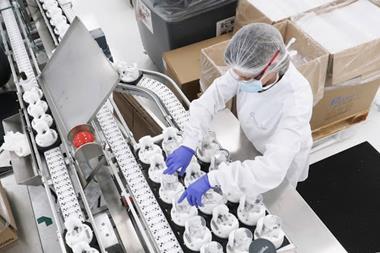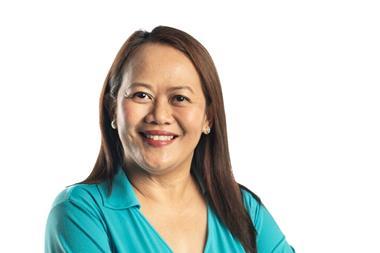Marriott’s Sharon Xu on being people-oriented, embracing change and preparing for another COVID at the hotel chain giant
In terms of the number of available rooms, Marriott is the largest hotel chain in the world. With just shy of 8,000 properties compassing nearly 1.5 million rooms worldwide .
The hospitality industry possesses a potent risk management challenge. Encompassing vast operational risk with day-to-day operations involving the general public. Project risk when building or expanding a hotel. Alongside strategic risk, security risk, reputational risk, supply chain risk, and so on, across multiple territories in real-time.
Sharon Xu is director for Asia Pacific Insurance at Marriott Risk Management, overseeing operations in 26 countries and over 700 hotels in the region. So how does she keep Marriott ticking?
Risk is for everyone
“For me, everyone is a risk manager,” says Xu. “Everyone has to safeguarding the operations of the company. We need everyone’s commitment and support.”
Xu has been working in the insurance industry for 20 years, spending the first 13 years of her career working in Asia for a UK insurance broker, starting in Beijing, before a two-year stint in Shanghai, a period in Singapore and a return to Beijing in 2014.
Spending time in the energy insurance industry gave Xu experience in construction insurance alongside operational property and liability insurance. Then, in 2015, she joined Marriott as the Asia Pacific regional insurance director.
“My primary responsibility at Marriott is leading the entire insurance practice for the company in the region. I place liability insurance for the company, but I am also a member of the high risk committee where we analyse critical exposures that may threaten the company’s operations,” says Xu.
“However, while insurance is important, it is never the only thing. Sometimes it may not even be the first thing to consider. Some risks are not even insurable. So the first considerations need to be: why are we doing this? What is the cost and the benefit of doing it? Who will lead this? Do we have the right processes and operating procedures in place?”
No status quo
Despite being at Marriott for seven years now, Xu says the role remains fresh to her in the sense that new risks to the business develop so frequently, alongside new employees or teams with additional ideas.
“To me, every day is a new day,” says Xu. “That is also part of the fun of being a risk manager – it does not have a status quo and I like that. There has to be change because the world is changing and business models are changing. This ensures that people stay alert and responsive. They adapt to the changes.”
Xu says that a good risk manager embraces this change and looks to drive communications and bring various stakeholders together.
“It is understandable that people do things independently, harbouring different goals and perspectives. The key is having someone who knows the business and understands the risks that can be abandoned, or alternatively where you must stay vigilant,” says Xu.
In terms of the risks which chiefly consume Xu’s time, third party legal liability relating to the organisation’s operations is key.
“This could be a guest injuring themselves in the restaurant or at the pool. However, operations take place in every corner of the hotel and an incident can happen everywhere.
“We look at operations from different angles and present the case to the insurer to let them have more confidence in the company’s operations. In addition to that, I always do the coverage analysis.
”We have to keep ourselves updated about market developments and benchmark the policy to make sure it stays inline, or even ahead, of the market. With 700 hotels in the region, I also do the premium allocation to make sure that the cost is fairly distributed,” she says.
At Marriott, the risk team is often contacted by the business team about opportunities, such as a creative new customer experience idea.
“The idea can definitely be attractive, but sometimes you have to think about the legal liability. What about if an accident happened? What about a fire or explosion? What about litigation? What about your brand reputation? What about the financial losses if you fail with the event?
“You are not telling the business team they should stop. We are trying to call attention to potential exposures. Without us, they might go their own way and the risks will be ignored. That can cause significant exposure to the company,” says Xu.
COVID lessons
One of the hardest hit industries from COVID and its related restrictions was the hospitality sector. Travel restrictions and domestic lockdowns curtailed the industry’s progress, but what represents the ‘new normal’ in the current landscape?
“COVID meant that many hotels were forced to close or narrow down their operations at the time,” says Xu. “In terms of the operations and HR perspective, that makes a significant impact.
”We had to ensure that, even if a hotel had to reduce its workforce, that the maintenance of the hotel is still kept up to standard. There can never be a compromise on operation safety standards.”
COVID also saw the introduction of new business approaches, such as additional hygiene and security operational standards, which leaves Marriott in a better position in general to mitigate against another COVID-like events in the future.
“We have acquired important experience from COVID and the mind-set of people to ‘expect the unexpected’ after going through COVID leaves us better prepared for the future,” she says.
People-focused
Xu explains that what she enjoys most about risk management is the interpersonal elements.
“Risk management involves working and interacting with different people and stakeholders. In a risk manager role, we have the opportunity to interact with people of different backgrounds and skills sets. I like working with the engineers on the technology or the accountants on asset liability or equity.”
This broad reach of interactions is what makes the risk management decision-making process so sophisticated. Gaining different perspective from across a business is a privilege of working in risk, she insists.
“I receive feedback from different people and they are so generous, sharing with me the pros and cons of everything. That helps me build up my ability to make informed decisions. You work with business departments, but also the leadership team. That helps us look at the most important ways to help us prioritise aspects within a business,” says Xu.
In terms of the future for risk management, Xu advised that risk managers must look to stay ahead of risk:
“We need to stay sensitive to what happens next. You might not know how the exposure to a certain risk might later expand to a larger claim. We look to proactively issue guidelines to our hotels. Insurance is part of it, but the risk manager must stay a step ahead of everything.”
In September, Marriott announced it expects to open 14 additional properties in Asia Pacific by the end of 2023 , meaning there will be plenty to stay ahead of for Xu and her risk team.




















No comments yet